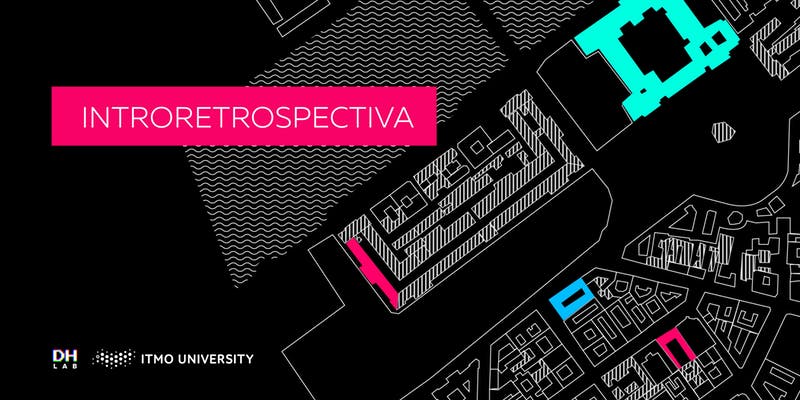[three_fourths]
This event introduces two 2018-19 Willard McCarty’s Fellowship holders Antonina Puchkovskaia ((Associate Professor, ITMO University, Saint-Petersburg, Russia) and Anguelina Popova (Director, Center for Teaching, Learning, and Technologies, American University of Central Asia, Kyrgyzstan). Their lectures will explore the intersections of language, tradition, and space in the historical and cultural contexts. Chaired by Stuart Dunn, the event will also feature two short talks on the intersecting ideas.
This event is free to attend, please register your interest on Eventbrite:
Prof WILLARD MCCARTY (Professor of Humanities Computing Emeritus, King’s College London)
Computing | Humanities: What’s the Relationship? (10 min)
STUART DUNN (Senior Lecturer in Digital Humanities & Deputy Head of the Department of Digital Humanities, KCL)
Territoriality in cyberspace: dealing with contested geographies in the age of Google Maps (20 min)
This talk will offer a brief overview of how conflict and competing claims on physical land are represented in the digital world. Drawing on examples from Cyprus and Greece, it will ask the question of how “the digital” is driving us to reconsider the idea of what a border is. How are digital “borders” formed, defined and policed?
GABRIELE SALCIUTE CIVILIENE (Lecturer in Digital Humanities Education)
Thinking and Modelling Spatio-Temporality across Languages (20 min)
Language helps us talk about mental representations of time and space. The metaphors of spatializing time and temporalizing space differ, revealing how we reason across cultures. Language use and text making, on the other hand, are situated in and enmeshed with our being in and experience of time and space whose intimacy, specificity, and multiplicity are hidden underneath the conventionalized surface of texts. In this talk, I will consider how the computing of translations by repetemes (i.e. strings of repetitions) opens up, among other things, a possibility for modelling spatio-temporal patterns that instantiate Gadamer’s being-in-the-world-through-being-in-language.
ANTONINA PUCHKOVSKAIA (Associate Professor, ITMO University, Saint-Petersburg, Russia)
Inaugural Lecture on Visualizing St Petersburg Based on Russian Corpus Analysis (45 min)
What is/are Digital Humanities? How to rise a research question challenging enough for both Humanities and Computer Science fields? What are the challenges of doing DH at the predominantly STEM-based University? This lecture will revolve around interdisciplinary research in progress situated at the intersection of history, librarian studies, cultural studies, and information technologies. The aim of this research is to create an open-source-software-based web application by using historical and cultural heritage data on the key landmarks of St. Petersburg. Our deliverables are an educational database and web/mobile applications into which users will be able to tap by means of retrospective visualization and an interactive city map that would track nearby objects via user’s geolocation. To that end, we are analyzing both sources and records. In our case, sources are manuscripts that range from a single paragraph to a multi-volume book. Records are source fragments that can range from a single record to hundreds of sections, pages, or paragraphs in a book. Our database schema links people, occasions, and dates based on primary sources. Finally, all objects are being mapped onto an interactive city map of St. Petersburg, the interface of which will facilitate easy navigation and allow filtering by different categories such as restaurants, music salons, and apartments.
ANGUELINA POPOVA (Director, Center for Teaching, Learning, and Technologies, American University of Central Asia, Kyrgyzstan)
Tracking the Nomads: How Digital Humanities Can Assist the Preservation and Deeper Understanding of an Ancient and Living Oral Tradition (35 min)
This talk will revolve around three major threads as follows:
- The nomadic culture of the Kyrgyz and why we find it interesting to study;
- The Manas epos and the studies of the epos;
- The contribution of the American University of Central Asia, in particular of James Plumtree, and the AKYN project, to a fresh look at the Manas epos.
I will introduce the digital aspect in working with this vast oral tradition. While the epos constitutes a significant part of the cultural heritage of the Kyrgyz, and has been used as a nation- building block after the collapse of the Soviet Union (including being part of a higher education state exam), the tradition has been considered as a fixed one. This significantly mutilates the oral tradition as a rich and evolving one. We are working on studying and demonstrating how the tradition has evolved over time, and our project has been significantly facilitated by the digital humanities tools. The talk will present the venues which have been used, and those that can be used, to map historical events, migrations, and languages within and beyond the Manas epos and other oral traditions of the region.
Q&A session
[/three_fourths]
[one_fourth_last]
Date and time
Tues, 11 June 2019
16:00 – 18:00 BST
Location
King’s College London
30 Aldwych
Bush House Room(SE) 2.10
South-East Wing
London WC2B 4BG
[button open_new_tab=”true” color=”accent-color” hover_text_color_override=”#fff” size=”medium” url=”https://www.eventbrite.co.uk/e/language-and-space-in-public-imagination-willard-mccarty-fellowship-lecture-series-tickets-60621177574″ text=”Register” color_override=””] [/one_fourth_last]

